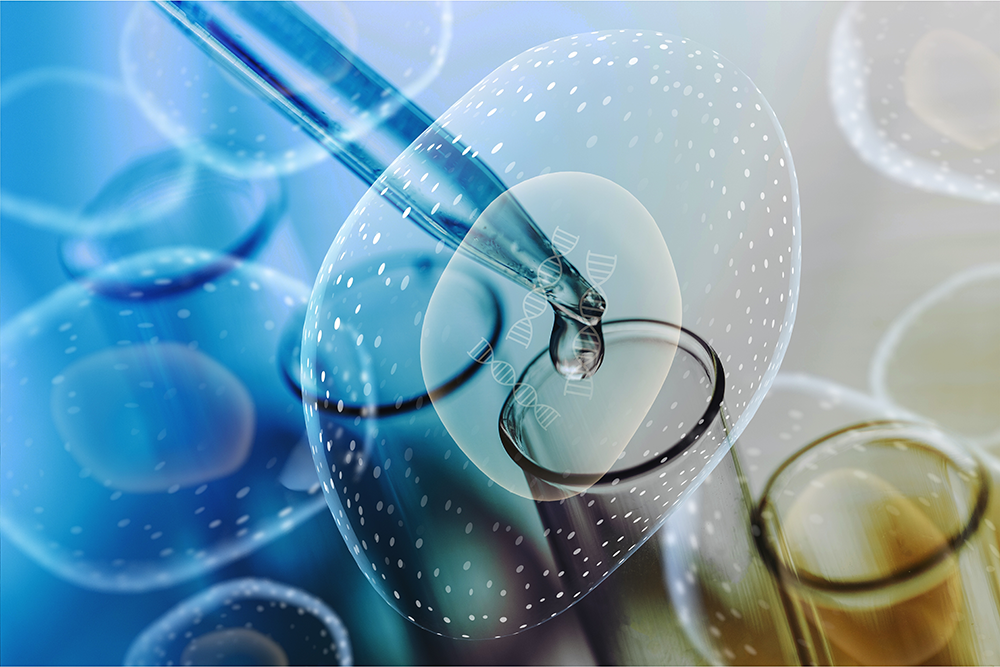Proteins are the dynamic powerhouses within our cells, driving essential functions that keep living organisms thriving. To truly understand and describe complex biological systems, accurate protein analysis is key. This pursuit is the focus of proteomics, the large-scale study of proteins, including their structures and functions.
Liquid chromatography-mass spectrometry (LC-MS) is the gold standard technique for high-throughput protein identification and quantification across a myriad of samples. Through LC-MS-based proteomics, scientists can gain comprehensive insights into the protein composition of cells, tissues, and organisms, enabling advancements in biomedical research, diagnostics, and therapeutics. Typically, proteomics sample preparation involves extracting proteins from tissues, cells, or biological fluids, followed by a meticulous process of breaking down disulfide bonds and enzymatically digesting the proteins into shorter peptides. These peptides are then expertly separated and detected by LC-MS analysis.
The Challenge
Several sample types pose significant challenges for protein extraction due to their complex matrices. Typically, harsh extraction buffers are employed to break down these matrices; however, these reagents are often incompatible with LC-MS sample preparation and analysis. Consequently, many highly efficient extraction buffers can hinder proteolytic activity and reduce MS ionization efficiency, limiting the scope of proteome coverage. Moreover, contaminants such as salts, lipids, and other non-protein molecules from the sample itself can interfere with subsequent analysis. To overcome this, these buffers and contaminants need to be removed before protein digestion, ensuring comprehensive and accurate results. The method used must be easy to use, unbiased, broadly compatible, reproducible, and scalable. Additionally, manual preparation for proteomic analysis can be time-consuming and prone to variability, affecting the reproducibility and reliability of results. High-throughput laboratories need an efficient, automated solution to handle large sample volumes while maintaining high data quality.
The Solution
Single-pot, solid phase-enhanced sample preparation (SP3) technology is a rapid and efficient method to concentrate and purify proteins after effective sample lysis and denaturation. Exclusively licensed by PreOmics, the SP3-iST Add-On utilizes paramagnetic beads functionalized with hydrophilic groups for protein binding. This allows washing and digestion steps to be completed while proteins are bound to the beads. The workflow is compatible with a wide variety of extraction buffers, resulting in unbiased, reproducible protein recovery with minimal sample processing. For improved sample quality with optimal digestion efficiency, SP3-based protein clean-up is readily combined with PreOmics’ iST kits for robust and efficient proteomic sample preparation, including alkylation, digestion, and subsequent peptide clean-up in one streamlined protocol. This innovative and easy-to-use SP3-iST workflow is ideal for removing harsh denaturation reagents and matrix contaminants and is suitable for a wide variety of sample types. As a magnetic particle-based workflow, SP3 is easily automated on common liquid handling platforms for efficient scale-up and reduced hands-on time.
Automated Efficiency with Tecan Freedom EVO® 100
The integration of the SP3-iST kit with the Tecan Freedom EVO® 100 platform offers a streamlined, automated workflow for sample preparation. This setup automates the lysis, reduction, alkylation, and digestion steps, followed by dual clean-up to remove contaminants. The entire process is designed to handle up to 96 samples simultaneously, reducing hands-on time and increasing throughput. By leveraging this advanced technology, laboratories can ensure high data quality and reproducibility while efficiently managing large sample volumes. This combination of SP3-iST technology and automated platforms marks a significant advancement in proteomics, pushing the boundaries of what can be achieved in protein analysis.
Closing Thoughts
Automating bead-based protein sample preparation using SP3 technology offers a powerful solution for overcoming the challenges associated with harsh sample matrices in proteomics. By integrating this method with automated platforms like the Tecan Freedom EVO® 100, laboratories can achieve high-throughput, reproducible, and reliable results. This approach not only enhances the efficiency of proteomic workflows but also expands the potential for new discoveries in the study of complex biological systems. As the field of proteomics continues to evolve, innovations like the SP3-iST workflow will play a crucial role in advancing our understanding of proteins and their roles in health and disease.



.webp)








